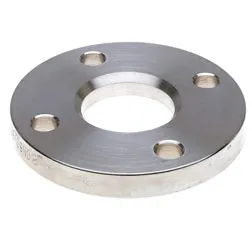-
Cangzhou Yulong Steel Co., Ltd.
-
Phone:
+86 13303177267 -
Email:
admin@ylsteelfittings.com
- English
- Arabic
- Italian
- Spanish
- Portuguese
- German
- kazakh
- Persian
- Greek
- French
- Russian
- Polish
- Thai
- Indonesian
- Vietnamese
- Zulu
- Korean
- Uzbek
- Hindi
- Serbian
- Malay
- Ukrainian
- Gujarati
- Haitian Creole
- hausa
- hawaiian
- Hebrew
- Miao
- Hungarian
- Icelandic
- igbo
- irish
- Japanese
- Javanese
- Kannada
- Khmer
- Rwandese
- Afrikaans
- Albanian
- Amharic
- Armenian
- Azerbaijani
- Basque
- Belarusian
- Bengali
- Bosnian
- Bulgarian
- Catalan
- Cebuano
- China
- China (Taiwan)
- Corsican
- Croatian
- Czech
- Danish
- Esperanto
- Estonian
- Finnish
- Frisian
- Galician
- Georgian
- Kurdish
- Kyrgyz
- Lao
- Latin
- Latvian
- Lithuanian
- Luxembourgish
- Macedonian
- Malgashi
- Malayalam
- Maltese
- Maori
- Marathi
- Mongolian
- Myanmar
- Nepali
- Norwegian
- Norwegian
- Occitan
- Pashto
- Dutch
- Punjabi
- Romanian
- Samoan
- Scottish Gaelic
- Sesotho
- Shona
- Sindhi
- Sinhala
- Slovak
- Slovenian
- Somali
- Sundanese
- Swahili
- Swedish
- Tagalog
- Tajik
- Tamil
- Tatar
- Telugu
- Turkish
- Turkmen
- Urdu
- Uighur
- Welsh
- Bantu
- Yiddish
- Yoruba

Oct . 01, 2024 12:15 Back to list
JIS B2220 Standard Specification for Industrial Valves and Components
Understanding JIS B 2220 Specifications and Applications
The Japanese Industrial Standard, known as JIS, serves as a framework for quality assurance and standardization in manufacturing practices across Japan. One of the key standards within this series is JIS B 2220, which pertains to the specifications for flanges. This standard is critical for engineers and manufacturers involved in the production and use of piping systems, especially when it comes to designing joints between pipes or equipment.
Overview of JIS B 2220
JIS B 2220 outlines the requirements for flat-faced and raised-faced flanges made from different materials, generally focusing on steel flanges, which are widely used in various industrial applications. The standard provides detailed information regarding dimensions, tolerances, material properties, and performance requirements. Its purpose is to ensure that flanges can withstand the pressures and thermal variations encountered in piping systems.
Flange Types and Classifications
The standard categorizes flanges into different types based on their design and application. The most common types include
1. Slip-on Flanges These flanges are designed to slide onto the pipe, allowing for easy alignment and welding. They are generally used in lower-pressure applications.
2. Weld Neck Flanges Characterized by a long tapered neck, these flanges are welded to the pipe and are suitable for high-pressure applications, providing excellent strength and stability.
3. Blind Flanges These are solid flanges used to seal the end of a piping system. They are crucial in piping where future expansion may be anticipated.
JIS B 2220 also classifies flanges by pressure ratings, enabling users to select flanges that can handle specific operational pressures. The ratings typically range from 5K to 10K, signifying the maximum pressure in kilogram-force per square centimeter (kgf/cm²) that the flange can sustain.
jis b2220 10k

Material Specifications
Another critical aspect of JIS B 2220 is the specification of materials from which the flanges can be manufactured. Common materials include carbon steel, stainless steel, and alloy steel. The choice of material often depends on the operating environment, including factors such as temperature, corrosiveness of fluids, and mechanical stress. For instance, stainless steel is often preferred in corrosive environments due to its excellent resistance to rust and oxidation.
Dimensional Standards and Tolerances
JIS B 2220 provides precise dimensions and tolerances for flanges, addressing aspects such as bolt hole spacing, thickness, and outer diameter. These specifications are essential for ensuring that flanges fit securely together and function effectively within the piping system. The standard also enables compatibility with other types of flanges, enhancing the versatility of piping designs.
Applications of JIS B 2220 Flanges
The application of JIS B 2220 flanges spans various industries, including oil and gas, chemical processing, water treatment, and construction. They are vital components in piping systems that transport fluids, gases, or slurries. Their reliable design helps prevent leaks and failures, which could lead to costly downtimes or environmental hazards.
Moreover, JIS B 2220 flanges are frequently used in conjunction with other standards, such as ANSI or ASME, especially in international projects where multi-standard compliance is desired. This integration promotes global interoperability, allowing for smooth operations within multinational enterprises.
Conclusion
In summary, JIS B 2220 is an indispensable standard in the manufacturing and engineering sectors. By providing a comprehensive guideline for the design and application of flanges, it assures quality, safety, and efficiency in the construction of piping systems. Whether in high-pressure environments or in complex industrial processes, adherence to this standard facilitates effective communication between manufacturers and engineers, leading to optimal system performance. As industries continue to evolve, the relevance of JIS B 2220 remains pivotal in upholding the integrity and safety of piping solutions worldwide.
Latest news
-
ANSI 150P SS304 SO FLANGE
NewsFeb.14,2025
-
ASTM A333GR6 STEEL PIPE
NewsJan.20,2025
-
ANSI B16.5 WELDING NECK FLANGE
NewsJan.15,2026
-
ANSI B16.5 SLIP-ON FLANGE
NewsApr.19,2024
-
SABS 1123 FLANGE
NewsJan.15,2025
-
DIN86044 PLATE FLANGE
NewsApr.19,2024
-
DIN2527 BLIND FLANGE
NewsApr.12,2024
-
JIS B2311 Butt-Welding Fittings LR/SR 45°/90° /180°Seamless/Weld
NewsApr.23,2024











